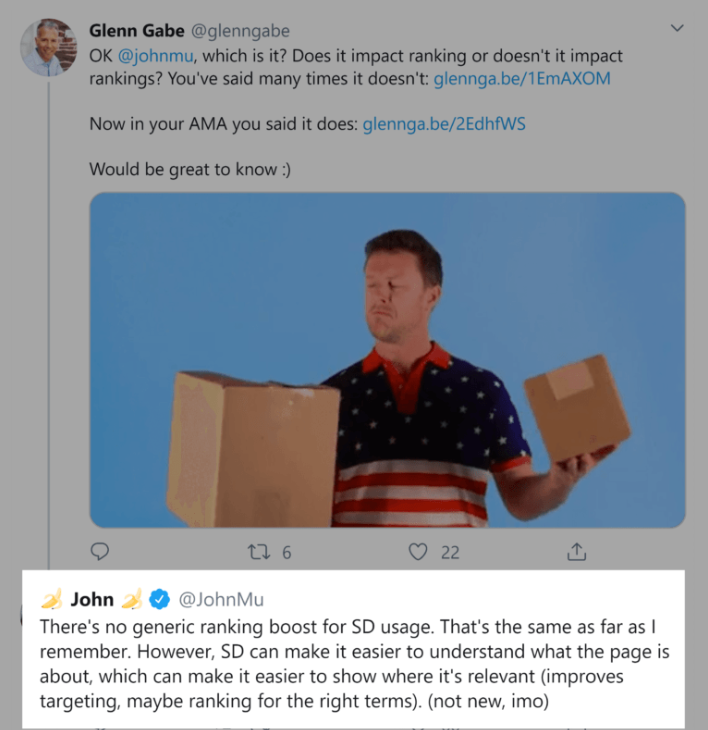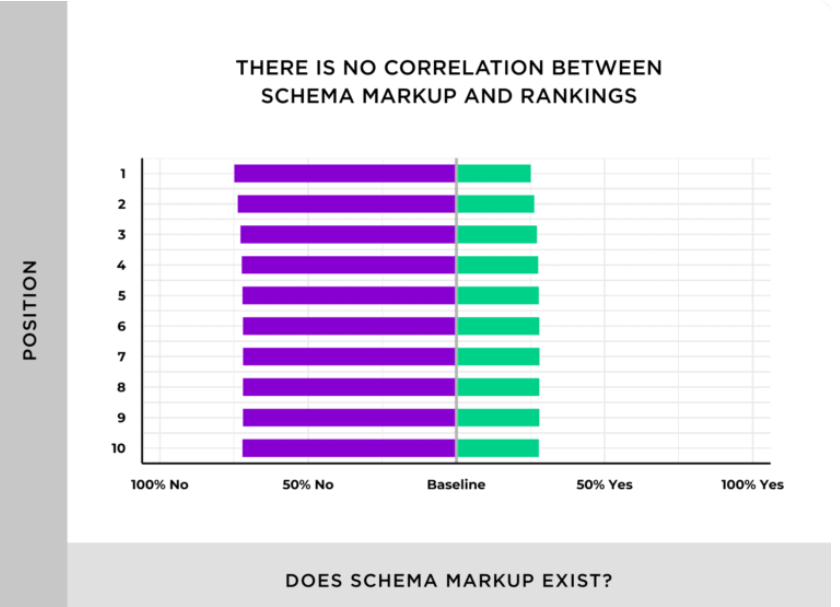Technical SEO Services: Fundamentals and Everything in Between
There are many aspects of SEO, but the fundamentals of technical SEO services are easy to understand.
Learning the basics is the best way to get started with technical SEO. Selecting the best technical SEO services and companies is crucial to enhance online visibility and address website issues effectively.
To do this, you need to know how search engines work and what makes a website rank well in them.
Here’s a quick rundown of what you need to know:
What is Technical SEO?
Technical SEO is the process of optimizing the technical bits of a website to make it visible, crawlable and indexable by search engines. It’s about making sure a website is structured in a way that search engine crawlers can easily get to, understand and index the content. This includes things like site speed, mobile responsiveness and secure connections (HTTPS).
Technical SEO is a big part of search engine optimization (SEO) as it helps improve a website’s ranking, drives more organic traffic and increases online presence.
By sorting out the technical bits, businesses can make sure their website is user friendly and search engine friendly which means better performance in the search engine results pages (SERPs).
The Basics of Technical SEO
Technical SEO is the practice of optimizing a website so it can rank higher in search engine results pages (SERPs).
A technical SEO consultant can help you audit your website and create a technical SEO checklist to improve your website’s performance. Technical SEO specialists play a crucial role in conducting technical audits and implementing data-driven recommendations to enhance website performance and search rankings.
After all, you could be making the world’s most engaging, thoughtful content on your website — the kind that converts visitors into customers.
But, your efforts will be wasted if search engines can’t properly browse your website and index it.
That’s why technical SEO is important.
Even at the most basic level, Google and other alternative search engines need to be able to find, crawl, render and index your web pages.
However, this is not always enough.
For your site to be fully optimized for technical SEO, your webpages need to load fast, be secure, mobile optimized, with no duplicate content, … and a thousand other things that go into technical optimization.
For example, part of technical SEO services is the use of an API (Application Programming Interface) to analyze your web pages for common problems.
And don’t get me wrong.
Even if your technical SEO isn’t perfect, you will rank.
However, it goes without saying that the easier you make it for Google to access your content, the better your chance to rank.
Benefits of Working with a Technical SEO Agency
Partnering with a technical SEO agency offers numerous advantages that can transform your website into a high-performing, search-engine-friendly asset. Here are the key benefits:
1. Improved Website Crawlability and Indexing
Technical SEO agencies ensure that search engines can efficiently crawl and index your website. By optimizing your site’s structure, XML sitemaps, and robots.txt files, they make it easier for search engines to understand and rank your content.
2. Enhanced Website Speed and Performance
Page speed is critical for user experience and search engine rankings. Technical SEO experts identify bottlenecks like large files, unoptimized images, or server issues and implement solutions to enhance your website’s loading times and overall performance.
3. Identification and Resolution of Technical SEO Issues
Agencies perform comprehensive audits to detect problems like broken links, duplicate content, improper redirects, and server errors. These issues, if unresolved, can hinder your rankings and user experience.
4. Optimized Technical Elements for Better Rankings
Agencies optimize technical elements like structured data, schema markup, and mobile responsiveness. These enhancements make your website more accessible and valuable to both users and search engines, leading to higher rankings.
5. Broader Reach and Engagement
By ensuring your website meets SEO best practices, agencies help you achieve better visibility in search results, reaching a wider audience and driving higher engagement.
Partnering with a technical SEO agency not only enhances your site’s functionality but also delivers measurable results in rankings, traffic, and user satisfaction.
Technical SEO Audit and Analysis
A technical SEO audit analyzes a website’s technical aspects to improve its visibility and performance in search engines. It can help identify issues that may be hindering a website’s search engine visibility.
What does a technical SEO audit analyze?
Broken links: Check for broken links on the website
Page speed: Analyze how fast the page loads for both humans and search engines
Coding errors: Check for any coding errors on the website
Crawlability: Check how easy it is for search engines to crawl the website
Indexability: Check how easy it is for search engines to index the website
Mobile-friendliness: Check how the website looks and functions on mobile devices
Canonical tags: Check if there are any pages with missing, duplicate, or multiple canonical tags
Internal linking: Check the number of internal links pointing to and from each page
What can a technical SEO audit help with? Improve a website’s visibility in search engine results pages (SERPs), Increase organic traffic, and Improve the overall site experience.
How long does a technical SEO audit take?
On average, a technical SEO audit and implementation can take between 2-6 weeks
The timeframe can be affected by whether the audit is automated or manually reviewed
To Improve Your Site’s Optimization, Take into Account These Technical SEO Services
1. Structured Data
Building structured data means helping Google understand your website content by creating a detailed site description in a language that Google can readily understand. Technical SEO companies can help implement structured data effectively by leveraging their expertise and industry experience.
So, your structured data might include the article’s title, the description, or content, and other elements that are in a code (schema) that Google likes (more on that below.)
If you want to learn how to create structured data, you can check out Google’s Codelabs for examples and use these structured data testing tools if you need further help.

2. Schema Markup
Adding schema markup to your website can be a great way to improve your technical SEO.
As mentioned before, schema markup is a language (code) that helps search engines understand the content on your website. Technical SEO agencies can assist in implementing schema markup effectively.
The schema.org vocabulary includes formats for structuring data around all kinds of people, places, and things on the web.

Does setting up Schema directly help your site’s SEO?
Google itself has been vague about its impact on rankings.

But… the short answer is No.
In fact, a search engine ranking factors study from Backlinko found no correlation between Schema and first-page rankings.

That being said:
Using Schema CAN help search engines better understand your site.
You can increase your chances of appearing in Rich snippets and Google’s Knowledge Graph.
And because they stand out in the SERPs, they can dramatically improve your organic click-through rate.
So, it’s definitely worth it.
3. Switching to HTTPS If You Haven’t
In 2025, everything is about security.
And, if you’re not using HTTPS yet, now’s the time to switch.
HTTPS is a more secure way to browse the web, and it’s becoming more and more common.
Actually, it has become more of a necessity than a choice.
Many website owners are choosing to switch to HTTPS because it’s a simple way to improve security.
But it’s a big deal, and one of the best things you can do to protect yourself online today is to switch to it as soon as possible.
And if your site isn’t secure, then every time someone visits it, they’ll risk having their personal information stolen and used against them.
Here’s why:
HTTPS means that not one person and not any search engine can see what you’re up to on your computer.
That includes things like which sites you visit, how long you stay on each website, and which links you click on while visiting.
“Well…the security part is a huge plus, but what about the performance?” – I hear you say.
There has been a misconception that HTTP performs better than HTTPS, but that isn’t true.
A leading technical SEO company can help transition to HTTPS for better security and performance.
4. Semantic Markups (e.g., HTML5)
Semantic markup uses a markup language (such as HTML) to convey information about the meaning of each of these elements.
What it does is that it selects the proper markup elements and maintains complete separation between this markup and the visual presentation of the elements.
HTML5 is the most recent version of Hypertext Markup Language — a code that helps structure content on the web.

But what does this have to do with SEO?
Well, one of the most technical aspects of technical SEO is making sure your website’s code is up to date and doesn’t have any errors.
The semantic use of HTML elements “enhances searchability, accessibility, internationalization, and interoperability.”
What this means is that writing semantic markup is mandatory if you want your website
To achieve a high search engine ranking,
To interface effectively with other web services.
To be available to different visitors
To be accessible to all visitors,
So, if you understand HTML tags, you understand SEO and can improve your ranking.
In HTML code, you add hyperlinks to an element that describes the link (the anchor text.)
Anchor text is the thing you click on to follow the hyperlink.
By clicking on hyperlinks, you go straight to the target site rather than routing a request through the server.
5. Page Speed and Website Performance
Page speed is one of the most important factors in ranking high in search engines. Speed optimization is crucial for improving page speed and enhancing user experience.
To improve your page speed, you can optimize your images, minify your HTML and CSS, and use a content delivery network.
A technical SEO consultant can help you with these things and more.
Through the power of CSS and JavaScript, so many more things are possible for web developers.
As web content becomes richer and more dynamic, page speed becomes a more critical factor in user experience.
It also is a sign of how well your content ranks in the SERPs.
Normally, the more JavaScript you have on your site (especially if there are complex elements), the longer it will take for your page to load.
Since page speed is a ranking factor, you want to make sure you pay close attention to how long it takes for your content to load once a user requests it.
6. Crawling, Indexing, and Rendering
Let’s assume you have your website connected to an IP address, and you’ve added your HTML, JavaScript, and CSS into the mix.
Now… what will happen next?
To ensure that your website appears in the SERPs, you need to understand what search engines are doing when crawling, indexing, and rendering your website.
The better you understand how this works, the more you can improve your technical SEO approach to meet the needs of visitors and search engines alike.
It goes without saying that the more you meet the needs of search engines, the better your chances of ranking well in the SERPs.
Using Google Search Console is essential for monitoring and resolving crawling and indexing issues.
Make sure your website isn’t blocking Googlebot from crawling your site.
Your website will not appear in the search results if blocked.
Keep in mind that JavaScript files that are too complicated might make it impossible for search engines to render your web content correctly.
Rendering happens when the search engine has finished crawling and indexing your website content.
If all goes well and your content begins appearing in the SERPs, Google (or any other search engine) wants to ensure that users see and interact with your content, just as you intended.
7. Accelerated Mobile Pages (AMP)
Accelerated Mobile Pages is a type of open-source HTML framework that Google has created to help you make web content friendly to mobile users.
This type of code allows you to focus and prioritize on mobile user experience first. Implementing AMP can be considered a technical SEO project to enhance mobile user experience.
That’s why this is something you should consider if you haven’t already.
After all, mobile internet browsing has boomed in the last decade, with over 50% of web traffic coming from a mobile device.

That’s why it’s fundamental that you build the kind of content that is easily accessible from any mobile device or tablet.
When you build web content with this open-source HTML framework known as AMP, these are some of the benefits:
AMP load almost immediately
It is much easier to build than other types of frameworks
Many major platforms support AMP
Developers can still implement CSS in AMP (keep in mind that the code won’t be as complex)
You simply have to build on the groundwork components of AMP as they are already there.
8. XML Sitemap Creation and Submission
Creating an XML sitemap is a technical SEO fundamental that ensures your website is crawlable for search engines. Essentially an XML sitemap is a file that is a map of all your website pages in a way search engines can understand.
Think of it as a guide for search engines. It points them to all the important bits of your site so they can crawl and index your content efficiently. This is especially important for large or complex sites where some pages might get missed.
But why?
Submitting a sitemap increases your chances of being indexed properly, increases your online visibility and potentially your search engine rankings. Whether it’s a new page or updated content an XML sitemap keeps search engines informed of changes to your site.
If you’re not sure where to start many SEO tools and plugins can generate an XML sitemap for you and submitting it is as simple as uploading it to Google Search Console. It’s a small task that can make a big difference to your website’s discoverability.
9. JavaScript Optimization and Rendering
JavaScript is the magic behind interactive and dynamic web pages but can also be a double edged sword for technical SEO. Poorly optimized JavaScript can slow down your site, hinder search engine crawling and hurt your rankings.
JavaScript optimization and rendering is all about making sure your site’s JavaScript works without slowing down or sacrificing accessibility.
Here’s how it works:
Minify JavaScript files to reduce their size and improve load times.
Defer non-essential scripts to prioritize loading critical resources first.
Ensure critical content remains accessible, even if JavaScript fails to load.
Enhance both user experience and search engine compatibility through these technical SEO optimizations.
Why?
Search engines like Google love fast loading, accessible sites. By optimizing JavaScript you’re not just improving page speed you’re also creating a better user experience which search engines love. This in turn can lead to better rankings, more visibility and more organic traffic.
JavaScript optimization is a technical task but it’s worth it. Whether you have a developer or a technical SEO agency working on your site investing in these tweaks will make a noticeable difference to your site’s performance and search engine presence.
Final Remarks
Hiring a technical SEO consultant is the best way to ensure your website is optimally configured for search engine crawlers and that you get the most of their technical SEO services. It is also crucial to select the best technical SEO agency to ensure your business’s online presence is effectively enhanced.
We hope you’ve found this primer on technical SEO useful in some way.
After all, it is meant to be an introduction of sorts—a general way to think about technical SEO and the problems that it aims to solve.
That being said, it would be impossible to cover all of the many skills involved in technical SEO here.
Next time, we’ll look at some more advanced techniques for dealing with a number of other technical problems that crop up when you’re trying to optimize your website for search engines.





